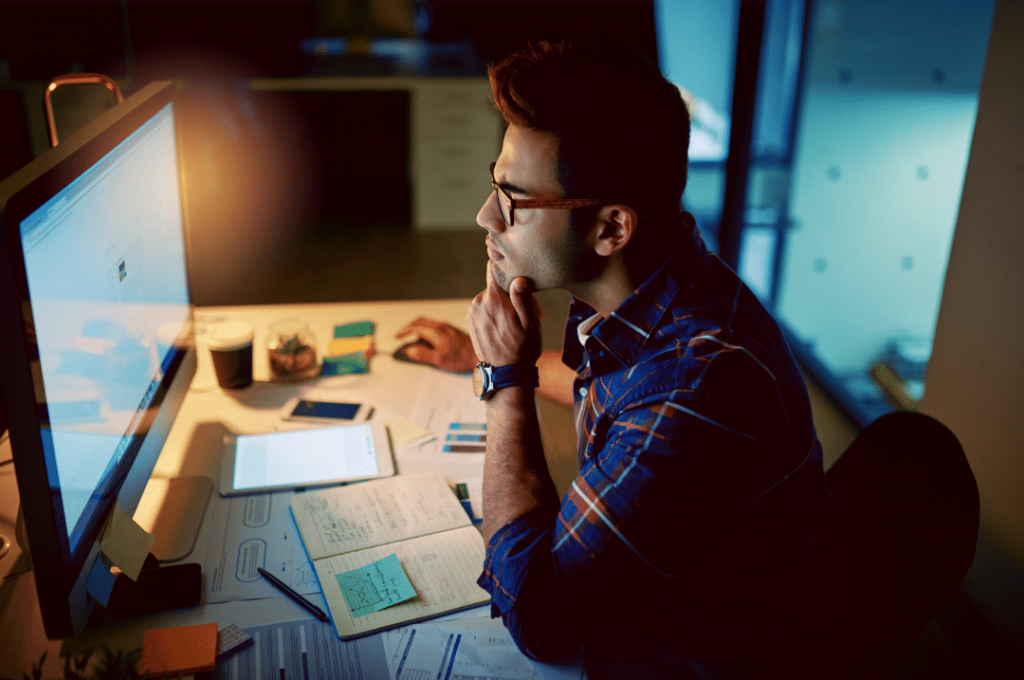Education & Career Trends: January 20
Curated by the Knowledge Team of ICS Career GPS

- Excerpts are taken from an article published on psychologytoday.com
Doing a digital detox is a common approach to overcoming distractions and excessive use of technology. There are also digital detox trip packages that, as you would expect, reserve you a room at a resort where technology is prohibited, but they are typically quite expensive.
The ship has already left port, though, as we live in a technologically advanced, networked society. Most individuals find that shutting themselves off from technology makes them suffer since they lose touch with their loved ones and friends. Cutting oneself off from technology prevents knowledge workers from accessing crucial business communications and information.
On our devices, our attention spans are brief.
People usually shift their attention between applications, websites, and gadgets throughout the day, according to an observed pattern of technology use (averaging 47 seconds of attention on any screen). Such rapid attention switching might exhaust us since it puts our thoughts on overdrive. Years of studies have demonstrated that such quick switching between tasks causes more mistakes, lower performance, and greater stress. Although we may believe that notifications or other interruptions are the reason we change our focus, we are just as likely to interrupt ourselves.
Many people are unaware that cognitive fatigue makes us even more prone to disruptions, such as notifications, advertisements, or internal urges to check social media or email. On the other hand, when we have enough mental resources, we can focus for longer periods of time and better withstand distractions, even those that come from within. Knowing when you are at your most focused and taking appropriate breaks are two of the simplest strategies to gain control over your attention. For most people, the common times are between mid-to-late afternoon and approximately 11 a.m. However, it depends on their chronotype—whether they are an early bird, a night owl, or a moderate type.
Instead of merely scheduling things, plan your day.
When we organise our days, we typically arrange chores back-to-back to cram as much as we can into each day. So how about planning your day holistically, taking into account both your high and low points in terms of mental energy? Plan your most crucial tasks—those that call for the greatest thinking and imagination—during the times when your attention is most alert.
Moreover, schedule meaningful breaks throughout your day so that you have time for reflection, meditation, physical movement, or other simple activities that will help you refuel. Catching up on email is not a genuine break; we frequently skip taking a true break in the belief that if we simply work a little bit longer, we’ll get more done. Going outside and taking a walk outdoors is the finest break of all.
The best break of all is to go outside and take a walk in nature. If circumstances don’t allow—say, if the weather is bad—then getting up and moving around is also a good break.
Yet, as research reveals, even performing monotonous tasks with minimal mental effort may make us joyful. Knitting, gardening, and playing basic games are examples of easy hobbies where you may recharge (the writer Maya Angelou did cross
You can use a “hook” to get you to stop, such as engaging in a simple activity for a short period of time to unwind before a challenging encounter.
Starting the day after a night of sound sleep, which offers you a full tank of mental resources, is one of the most crucial things we can do to improve our attention. Our attention spans shorten when our sleep debt (the total amount of time spent sleeping less than your recommended amount) increases over days. We tend to spend more time engaging in sedentary pursuits like social media because we lack the mental capacity to concentrate on demanding tasks.
Therefore, think about planning your day to command your attention by putting in time for good-quality breaks and purposefully arranging your hard work for when you are at your best. When you utilise your devices, you’ll be less distracted and get more done.
…
Have you checked out yesterday’s blog yet?
9 Strategies for Overcoming Overthinking
(Disclaimer: The opinions expressed in the article mentioned above are those of the author(s). They do not purport to reflect the opinions or views of ICS Career GPS or its staff.)
Like this post? For more such helpful articles, click on the button below and subscribe FREE to our blog.




One Reply to “How to Maintain Focus Even when Using Devices”